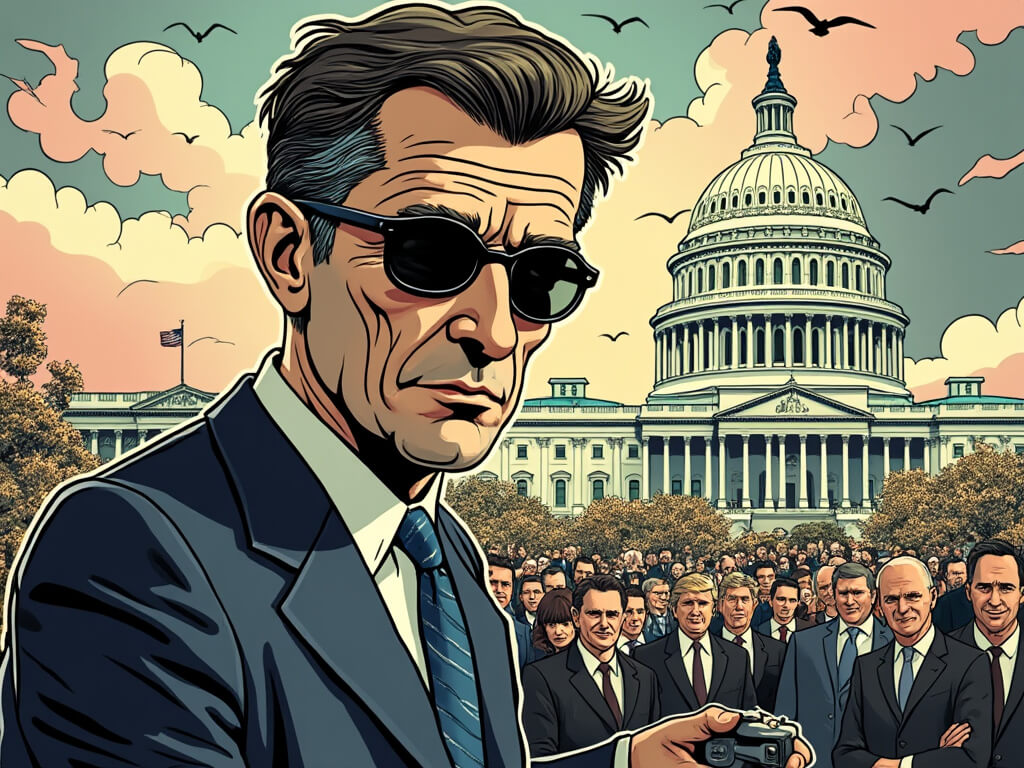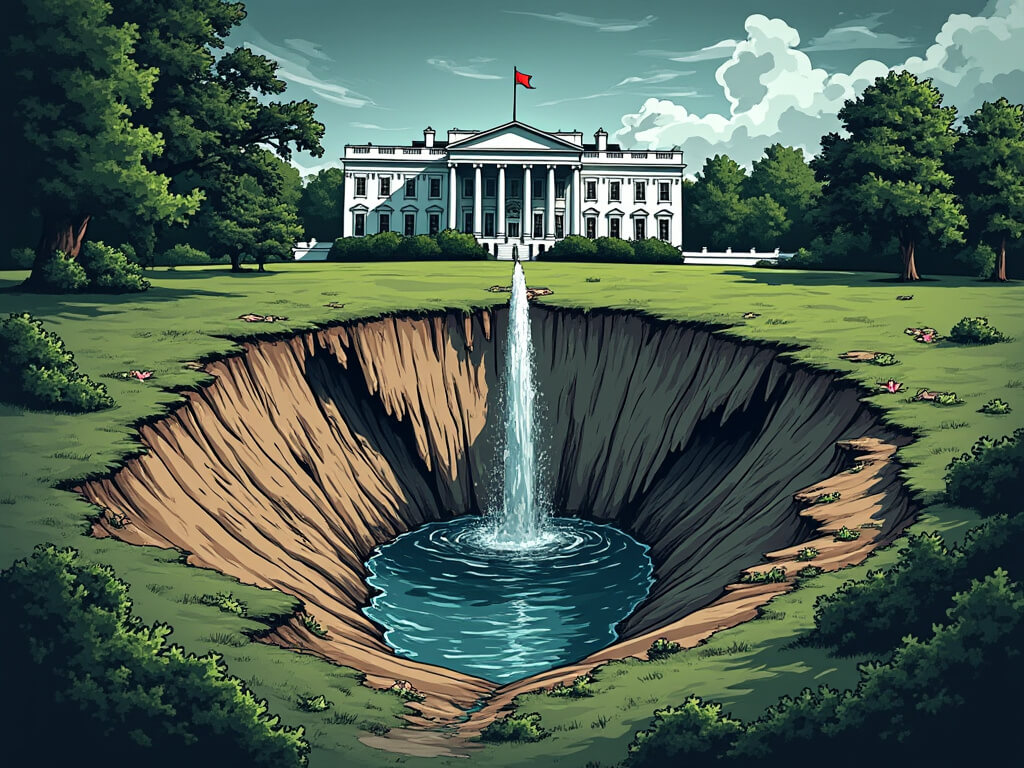How Fear and Fabricated Heroes Silenced America
You are stuck in The Patriot Trap and you don’t even know it.

In the wake of 9/11, lawmakers introduced the USA PATRIOT Act as a necessary tool to protect Americans from terrorism. It promised safety at the cost of a little freedom. This was a tradeoff many were willing to accept during a time of fear and uncertainty. Two decades later, the effects of the Patriot Act have gone far beyond national security. What policymakers sold as a shield against foreign enemies has become a weapon turned inward. The mere memory of the Patriot Act now helps with silencing dissent, chilling free speech, and transforming American citizens into passive participants in their own subjugation.

Even worse, the government’s carefully constructed narratives—including the stories of whistleblowers like Edward Snowden and Julian Assange—have only deepened this entrapment. While these figures are often celebrated as lone wolves exposing government corruption, they have unintentionally reinforced the very system they aimed to dismantle. As a result, their stories create a climate of fear and hopelessness. They convince many Americans that resistance is futile, that their voices don’t matter, and that someone else—someone better equipped, braver, or more connected—will fight the battle for them.
This is the Patriot Trap: a system that strips Americans of their agency while forcing them to be complicit in their own silence.
The Patriot Act: A Tool of Fear and Control
The USA PATRIOT Act marked the beginning of an era of unprecedented government surveillance. Dick Cheney deserves a lot of the credit for implementing this. By expanding the government’s ability to monitor phone calls, emails, financial transactions, and internet activity, it created the infrastructure for mass surveillance on a scale previously unimaginable. Although officials ostensibly aimed these powers at preventing terrorist attacks, they have profoundly impacted the American public’s psychology.



The Erosion of Rights
- The 4th Amendment, which protects against unreasonable searches and seizures, was effectively gutted. As a result, warrantless surveillance and metadata collection became the norm. Consequently, Americans were left to wonder if any of their private communications were truly safe.
- The 5th Amendment, which guarantees due process, was similarly undermined by practices like indefinite detention, secret watchlists, and the expansion of executive power.
These infringements, therefore, were justified as necessary sacrifices for the sake of national security. But the real target of these measures was not just foreign terrorists—it was the American people themselves. By creating a pervasive sense of surveillance, the government instilled a chilling effect on free speech, convincing many that it was safer to remain silent than to risk speaking out.
Fabricated Heroes: The Stories of Snowden and Assange
On the surface, figures like Edward Snowden and Julian Assange appear to be the antidote to the surveillance state. Their revelations exposed government overreach, war crimes, and violations of civil liberties, earning them praise as champions of transparency and accountability. But framing and weaponizing their stories have reinforced the Patriot Trap, rather than undermining it.
The Lone Wolf Illusion
People often portray Snowden and Assange as lone wolves—isolated individuals who dared to challenge a corrupt system. This narrative, while compelling, is misleading. Both relied on networks of journalists, insiders, and supporters to disseminate their revelations. Their actions, while courageous, were not truly solitary.


This portrayal creates a false model of dissent, suggesting that effective resistance requires extraordinary resources, connections, and bravery. For ordinary Americans, this narrative fosters the belief that “I can’t do what they did. I don’t have the platform, the skills, or the support.” The result leaves the populace feeling disempowered and unqualified to resist.
The Fear of Persecution
The fates of Snowden and Assange send an equally chilling message. Snowden lives in exile in Russia, unable to return to the United States without facing espionage charges. Assange has spent years in confinement, facing extradition and potential life in prison. These stories serve as cautionary tales, warning would-be whistleblowers about the personal cost of dissent.
Rather than inspiring resistance, these narratives instill fear. They suggest that even with global attention and support, the government will find a way to crush dissenters. For ordinary citizens, the implication is clear: If this is what happens to Snowden and Assange, what chance do I have?

The Outsourcing of Resistance
The elevation of Snowden and Assange as singular heroes has another unintended consequence: it allows Americans to outsource their responsibility for resistance. Many have come to believe that exposing government corruption is someone else’s job—someone braver, more capable, or more connected. This mindset fosters passivity and complacency, ensuring that the public remains silent while the government’s overreach continues unchecked.
The Fabrication of Activism
Adding to the Patriot Trap is the rise of manufactured activism: movements that appear grassroots but are heavily funded and controlled by political or corporate interests. These movements claim to represent the will of the people but often serve elite agendas, channeling public outrage into safe, non-threatening outlets.
The Illusion of Grassroots Action
- Many modern activist movements are designed to look organic, but their funding and messaging are tightly controlled. This creates a cynical public perception that all activism is performative or co-opted.
- Genuine grassroots movements, which lack institutional support, are drowned out or dismissed as fringe.

The Censorship of Authentic Voices
By promoting funded, controlled movements and high-profile whistleblowers, the system effectively censors real lone wolves and true whistleblowers—those who act independently, without media platforms or financial backing. The system marginalizes these individuals, who often represent the most authentic forms of dissent, to ensure their voices remain unheard.
The Warning Signs of a Bootlicking Society
The Patriot Trap has built a society where the law technically protects free speech, but people rarely exercise it. Americans have been conditioned to believe that dissent is dangerous, futile, or someone else’s responsibility. This trajectory leads to a dystopian future where:
- Elites Remain Unchallenged:
- A small class of political and corporate elites continues to dictate policy, unencumbered by public accountability or resistance.
- The Public Becomes Complacent:
- Americans, paralyzed by fear and convinced of their own powerlessness, accept their role as passive spectators in their own democracy.
- Dissent Is Pathologized:
- Speaking out against the government is increasingly framed as unpatriotic, reckless, or even criminal, further discouraging resistance.
If this trend continues, the result will be a nation of bootlickers—a society where the public not only tolerates authoritarian control but actively defends it, mistaking compliance for patriotism.
The Way Out of the Trap
Escaping the Patriot Trap requires a fundamental shift in how Americans view dissent, activism, and their own role in democracy. It starts with recognizing the mechanisms of control and reclaiming the power of individual and collective resistance.
What Americans Must Do:
- Reject the Fear Narrative:
- Understand that the government’s portrayal of omnipotent surveillance is as much about psychological control as it is about actual capabilities.
- Recognize the Value of Small Acts of Resistance:
- Dissent doesn’t have to be grand or publicized to be meaningful. Small, consistent actions can undermine systems of control over time.
- Support Authentic Voices:
- Seek out and amplify the voices of genuine dissenters—those who act without corporate or institutional backing.
- Hold the System Accountable:
- Demand transparency and accountability, not just from the government but from media platforms and activist organizations that claim to represent the public.
Breaking Free From The Patriot Trap
The Patriot Act and the narratives surrounding whistleblowers like Snowden and Assange have trapped Americans in a cycle of fear and passivity. By convincing the public that resistance is futile, dangerous, or unnecessary, the government has ensured its continued dominance while silencing dissent.
But the power to break free from this trap lies in the hands of ordinary Americans. By rejecting the narratives that paralyze them, embracing authentic activism, and reclaiming their voices, the people can challenge the systems that seek to control them. The alternative is a future where the public becomes nothing more than a compliant underclass, perpetuating its own silence in the name of patriotism. The choice is ours to make—and it starts now.















